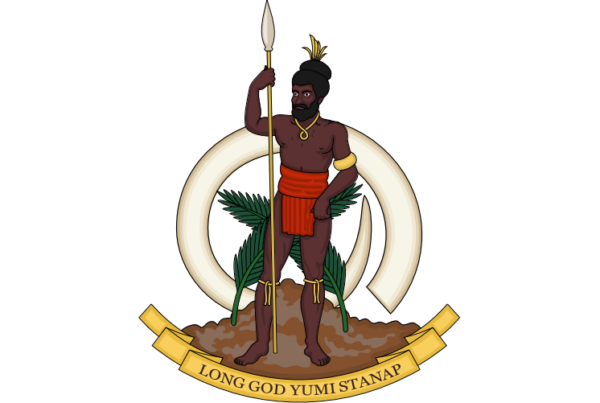By Martin St-Hilaire, Chairman of the FCA
Low taxes don’t make tax havens. Secrecy does. As long as Vanuatu embraces financial transparency, it should not be called a tax haven.
Ever since the Great Council of Geneva put financial secrecy into law in 1713, forbidding bankers from revealing their clients’ assets in what would much later become the world’s fifth biggest corporate tax haven, secrecy has been the grease helping turn the tax evasion wheel.
The world has changed since money could only be stored away from prying eyes in the form of precious metals; but even in our digital age, where every bit of data leaves a trace, people and corporations still manage to shelter assets in remote jurisdictions, flying under their home country’s radar. These jurisdictions willingly facilitate this activity with secrecy-enabling legislation.
In its recent Pandora Papers, the International Consortium of Investigative Journalists (ICIJ) highlighted a number of jurisdictions from South Dakota to the British Virgin Islands where rich foreigners can shelter money using trusts and shell companies that do not name them as beneficial owners.
These private tax havens do their hiding in broad daylight because their legislators have made it legal to do so; the ICIJ noted that certain U.S. states had deliberately “transformed themselves into leaders in the business of peddling financial secrecy”. They offer the same key benefit that made Switzerland a magnet for the money of European aristocrats three hundred years ago: confidentiality – and in so many cases its criminal offshoots, tax evasion and money laundering.

Come for the low tax, stay for the secrecy
Some who fight tax evasion maintain that any jurisdiction with zero or low income tax, such as Vanuatu, should be considered a tax haven by this criteria alone, and be placed on fiscal blacklists as a direct consequence. For instance, Oxfam has called on the European Union to “blacklist zero and low corporate tax jurisdictions”, the latter being defined as levies inferior to 12.5%.
But how could low taxation alone facilitate tax evasion if it wasn’t for secrecy?
For the tax evasion busters at the Whistleblower Justice Network, secrecy is the essential criterion:
“Tax havens are a tool. And like any tool, they can be used for legitimate purposes, or misused. The primary problem with tax havens is their most important, perhaps defining feature: secrecy and non-transparency. (…) Tax havens circumvent transparency and reporting, and place financial records beyond the reach of the IRS, courts, and regulators. This threatens the viability of [the] entire system.”
The Washington-based think tank Global Financial Integrity suggests calling them “secrecy jurisdictions” instead, for the sake of clarity:
“Tax havens aren’t tax havens just because they have low taxes—rather, what makes a tax haven is its opacity of financial information. This is why tax havens are often more accurately referred to as ‘secrecy jurisdictions’, and why they facilitate many more problems than just tax evasion.”
Tax evasion fighters around the world seem to agree that low to no tax on income is not the defining feature of a tax haven; cultivating secrecy is. Just because a sovereign country elects to raise revenue by other means than income taxation, it does not automatically mean that foreign account holders in its jurisdiction will be hidden from their home country’s tax collector.
And in 2021, hiding is harder than ever – especially for small independent nations like Vanuatu that don’t have the legal sophistication and the powerful connections of an American state or a British overseas territory.
Less and less places to hide
International rules make it harder by the day to conceal financial information.
First, there is the fight against money laundering and the financing of terrorism (AML-CFT). The Financial Action Task Force has set out a comprehensive framework of measures which countries must implement to be deemed AML-CFT compliant, at the risk of being placed on a watchlist that seriously hampers their prospects for international trade. As a result, the global financial industry has been pushed to implement extensive “know your customer” programs where they gather, verify and update information on each and every one of their account holders. Vanuatu’s financial industry is no exception.
Secondly, there is the Common Reporting Standard (CRS), created in 2014 by the OECD to allow the automatic exchange of information on financial accounts between tax authorities. By the end of 2021, more than 100 countries including Vanuatu have incorporated the CRS in their regulations, and each year all their financial institutions must submit the names of the ultimate beneficial owners of all their accounts, along with their balances. If a jurisdiction fails to compel its financial industry to comply, it runs the risk of being put on a watchlist that, again, will hurt its international trade. (The U.S. does not participate and relies instead on its own disclosure rules through the FATCA.)
Even iconic tax havens coming around
Furthermore, there is a global trend towards transparency above and beyond FATF and OECD requirements. According to Open Ownership, an organization that advocates beneficial ownership transparency, more than 150 countries are seriously committed to maintaining publicly accessible registers of all financial account owners under their jurisdictions, and more are getting on board. Most notably, the UK and its overseas territories have committed to adopting such registries, including major financial centres named in recent secrecy scandals such as the Cayman Islands and the British Virgin Islands.
Any jurisdiction deemed compliant by both the FATF and the OECD, with a fully implemented CRS and possibly an open beneficial owner registry, can claim to be a transparent jurisdiction where financial secrecy will be difficult to achieve. Whether or not that jurisdiction has low or no income tax is irrelevant for the fight against tax evasion. Therefore, it is inaccurate to call Vanuatu a tax haven.
Freedom through transparency
As long as a sovereign country plays by the international rules of transparency, its fiscal policy will only serve its tax residents. Any foreign account holder will be reported to his or her resident country’s tax authority, which will be able to fine them should they find any irregularity. Consequently, that sovereign country is free to adopt any fiscal policy it deems adequate for its residents ‘needs.
To each his own regime
If that country is a developed country with a sizeable population and a diversified economy, perhaps that policy might include a corporate income tax in the 20-30% range, along with a sophisticated array of subsidies, grants and tax credits to support investment; some companies will pay more tax than others depending on considerations like job creation, environmental impact, etc.
If that country is a one-party state with a large public sector and a history of government control in private companies, it may opt for even bigger subsidies and selective taxation to further its political interests rather than for strengthening its economic position.
And if that country is a small, poor nation like Vanuatu, it may make more sense to adopt a 0% corporate tax rate in order to attract investors and prioritize infrastructure development rather than implementing a costly income tax for the minority that participates in the already weak formal economy. Revenue can still be raised by more direct, usage-based means such as duties, licenses, fees, or a value-added tax.
Our sovereign right not to tax
In all logic, any sovereign country that passes global transparency tests should earn the right not only to enact the domestic policies of its own choice, but to be spared being criticised by other countries for doing so.
Unfortunately, the idea that countries with no income tax are harmful tax havens that should change their ways or be punished dies hard, as demonstrated by the European Union’s list of “noncooperative tax jurisdictions”.
The fact is, only financial secrecy harms other countries’ public revenue – to the tune of $483 billion in 2021 according to the Tax Justice Network. And as the Pandora Papers have shown, it is often facilitated in places like American states that do have a corporate income tax but also enable secretive structures to shelter foreign money, no questions asked.
For Vanuatu, attracting foreign investment to bring power and running water to its population is a more pressing priority than adopting a heavy, European-style tax regime. And as long as its promotes transparency, Vanuatu in no way contributes to the tax evasion problem; and it is wrong to call it a tax haven.





